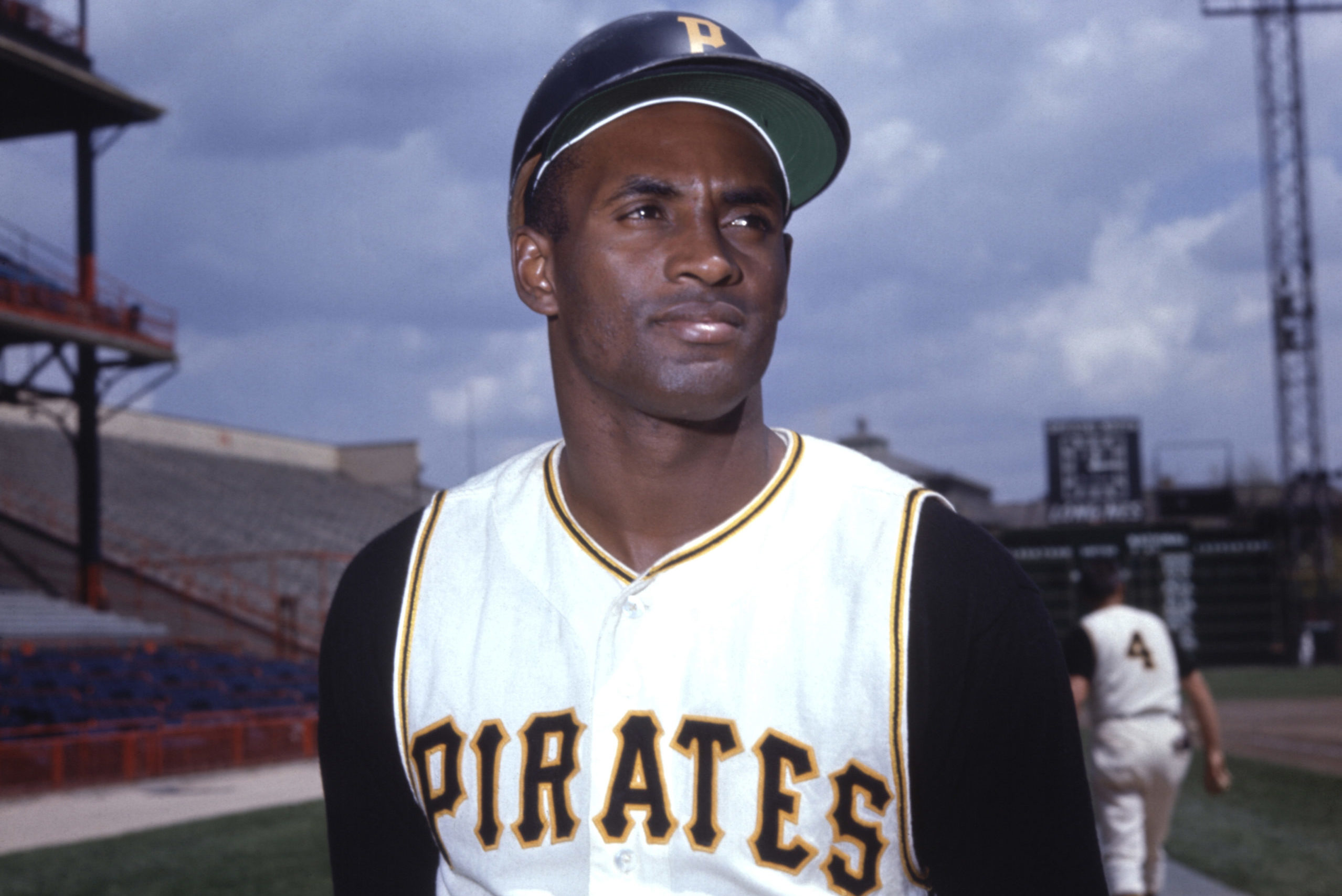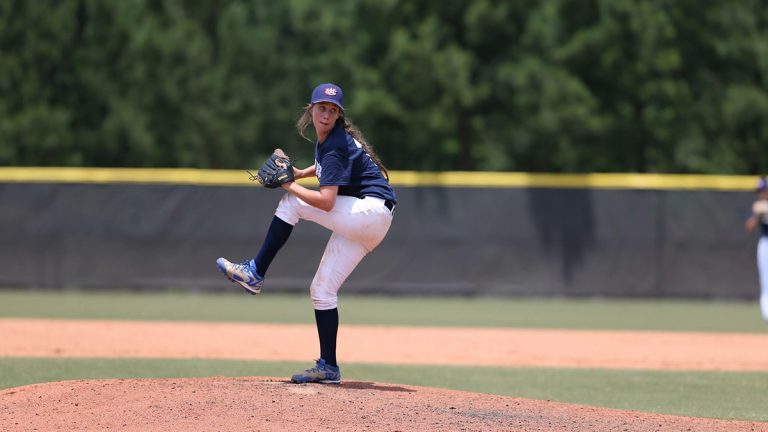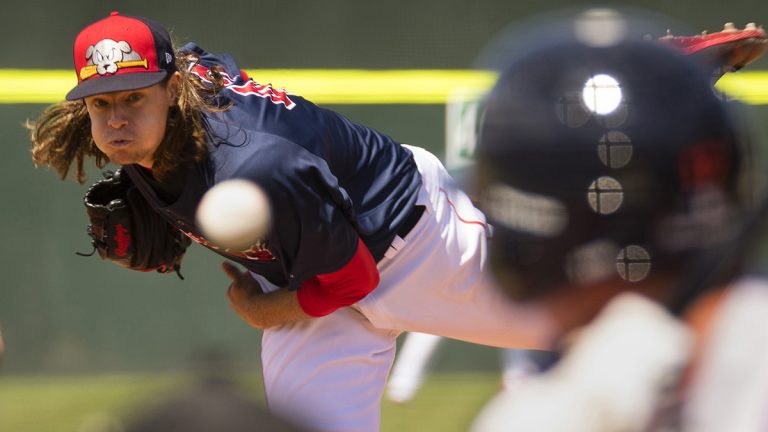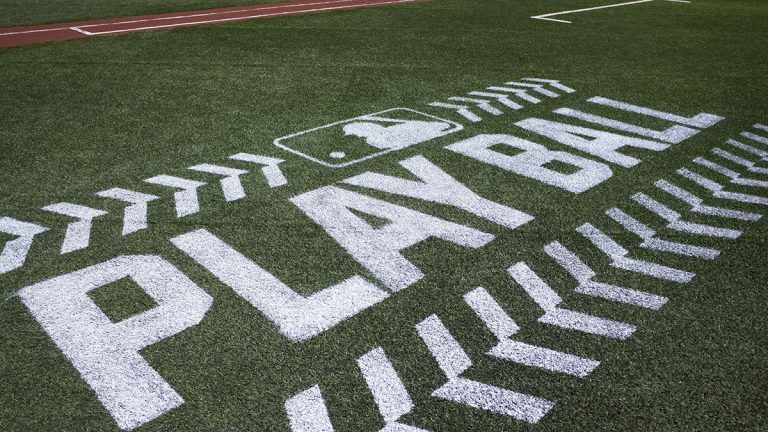What Would Clemente Do?
Latino RebelsWhy this matters
As America grapples with its issues on race and racism, Major League Baseball up to this point has remained fairly quiet on the Black Lives Matter movement. Roberto Clemente, an Afro-Latino, might have been just the person built for this moment.
As a kid growing up in Puerto Rico during the early 1970s, there’s a photo of me when I was 2 or 3 years old next to a swing set in some part of suburban San Juan that I wished I still had with me. Based on my last memory of this photo, I was holding an imaginary bat in a full stance, looking straight in the camera as if I were facing Bob Gibson. I was ready to hit that home run that would send Gibson (or whoever that camera was) off the pitcher’s mound dejected.
I was not afraid of anyone. I was ready for whatever challenge or the fake ball was coming my way. Here I was, the son of a baseball fanatic and grandson of an even greater baseball fanatic, about to shine. The reason for such swagger at such a young age? The answer was simple: this little slugger from Guaynabo, Puerto Rico, was wearing a certified Pittsburgh Pirates t-shirt with the number 21 tucked in the upper bottom corner.
I had the swagger because I was Clemente that day. Just like I was Clemente every other day.
A few months later, my first sports hero died at 38 years old. When you think of your earliest childhood memories, you tend to mix everything together. Who cried that fateful New Year’s Eve night in 1972? Did my abuelo? Did my papi? I think they did has now turned into I know they did. Did my papi introduce me to Clemente when I was 1 or 2? Maybe. What I can say for certain is this: all of Puerto Rico mourned its greatest baseball player ever. That arm. That hustle. That grit. That desire to help others and lead with grace. All gone too soon.
Ever since then, Clemente has followed me in life, a model of what it is to be a PROUD AF Puerto Rican. At the time, when I had moved to the Bronx in the late 70s and loved baseball, even more, I was always number 21. I had still not heard about the challenges Clemente had faced while he was playing (that would happen later in my life), but I had begun to realize even back then, he was not only Puerto Rican, but also Black. Maybe it was because I was getting into the life of Muhammad Ali and looking into the Greatest’s past, or maybe it was because this little kid from Guaynabo —who isn’t Black but saw early on that white privilege was real— had started connecting how racism in the United States was actual racism back home in Puerto Rico. I began to see Clemente as a great Black Puerto Rican who was speaking out against injustice and for equality during a time when he was mocked for his accent by mostly white sportswriters, told his white teammates to not eat in places that didn’t serve Blacks or led a push to not play MLB games after Martin Luther King, Jr. was killed on April 4, 1968.
“When Martin Luther King died, they come and ask the Negro players if we should play. I say, ‘If you have to ask Negro players, then we do not have a great country,’” Clemente said back then.
In my mind, Clemente was a silent activist of the 1960s, a leader of Latin American and Caribbean players who condemned bigotry, discrimination, hate while pushing for dignity and respect. As I read more and more about Clemente, and also spoke to people who knew him and even played against him, it was clear to me: Clemente was a proud Black Puerto Rican who didn’t stay quiet.
Which is why I have been asking myself this question a lot during this global movement for Black Lives: what would Clemente do?
He would be 86 years old if his plane that was bringing relief supplies to the victims of a 1972 earthquake in Nicaragua hadn’t plunged into the waters of the Caribbean.
What would he say about George Floyd, Breona Taylor, Tony McDade, Eric Garner, Philando Castile, Michael Brown, Sandra Bland, Travyon Martin, and all the countless Black Lives who perished at the hands of police? What would he say about lost Brown Lives like Andrés Guardado, Carlos Ingram López, Erik Salgado, Mike Ramos, and David Sal Silva?
For a player who would not be quiet about injustice, what would he say?
Searching for answers, I reach out to Luis Clemente, one of Clemente’s sons who now heads up his family’s foundation.
“Dad’s message still resonates more than ever today with all that is going on. He was certainly an activist,” Luis tells me.
“He utilized baseball as a vehicle to get his message across,” Luis adds. “Since day one when he entered the majors, he was saying it. That he was here to represent the poor people, the common people of America. That’s what he did.”
We proceed to talk about what it was like to grow up with his father and his late mother, Vera, who is just as adored by Puerto Ricans as her husband. In the eyes of Luis Clemente, his parents believed that all people should be treated with dignity.
“We grew up understanding that everyone is the same,” Luis says. “We didn’t look at different ethnicities or colors or where you come from. To us, we just knew one race—the human race. And basically we all lived in the same neighborhood, which is the planet. So that’s how we see it.”
“That’s how I think everyone should be looking among each other,” Luis continues. “We’re not different. We just come from different places. We were born in different regions, but in the same place, on the same planet. It’s as simple as that, and that’s what we got from Dad and Mom. Mom did so much to carry on what the legacy was truly about—it’s about caring, it’s about being a humanitarian and being active in that part. We all have it. It’s just a matter of activating it. It’s as simple as that.”
What I learned from Luis was almost exactly a confirmation of what I had read or watched about Clemente. That he was deeply proud of being Puerto Rican and Black, but how that still created problems for him as he advanced in his career. There were moments when Clemente would speak out, not with flash or pomp, but with a humble voice that people paid attention to.
“[Dad] did not ask to be treated better, he demanded to be treated equally, which is very different,” Luis says.
As MLB returns to action later this month, very few Black and Latino voices have shouted out “Black Lives Matter.” Something is missing and it feels disconnected. With all the admiration for Clemente, the question of whether MLB would be more “woke” if Clemente had been around with us for the past 47 years will always linger in my head, even before the killing of Floyd sparked a global uprising. Could Clemente have been a voice of quiet leadership that would have helped to dismantle white supremacy in sports? According to his son, Luis, Clemente would have been at the table to do the work because in the end, when he saw injustice, he would act.
“There’s no doubt in my mind he would have defined what his feelings were a long time ago and he would be voicing his opinion regardless. No one could stop him from saying what he felt, from speaking his mind,” Luis explains. “He had a lot of power in the community and in society.”
“He was a better player just to be able to get his message across. He had all the talent God gave him to put to work for equality, for justice for all. That’s who he was,” Luis adds.
If Clemente were around today, MLB would be different. Maybe we wouldn’t see such silence from Latin American and Caribbean players who seem to be more worried about getting a paycheck than pushing for racial justice. It’s hard to explain why, but I venture to guess that many Black Latino players tend to play down their Blackness during these times, when in fact they should be leaning in hard with their Blackness. Instagram posts by David Ortiz are a start, but they still feel safe. It seems like statements like those of Colorado Rockies outfielder Ian Desmod, who is biracial, are the exception.
It’s not like Clemente didn’t lead the way back when he said pretty clearly that he was both Black and Puerto Rican. One of his last public interviews from October 1972 essentially confirmed it.
“I think that I belong to the minority group. I am Puerto Rican. I am Black and I am between the walls,” he said in that interview. “So anything that I do first, it would be reflected on me because I’m Black, and second, it would be reflected on me because I am Puerto Rican. But with this when I tell you that to me, I always respect everybody and thanks to God when I grew up, I was raised… My mother and father never told me to hate anyone or they never told me to dislike anybody because of race or color. We never talked about that. As a matter of fact, I started listening to this stuff when I came to the States. So to me I would say that this is something that I love everybody and I have to be very careful about what I do because of who I am.”
What would Clemente do right now?
I honestly don’t know, but I do know this: Clemente would always stand up for what was wrong and if there is anything 21 has taught me, it’s that.
We don’t need more silence in baseball today. We need more voices.
Julio Ricardo Varela is an award-winning journalist born and raised in Puerto Rico. He is a GSM contributor, founder of Latino Rebels, and co-host of the In The Thick political podcast. He tweets from @julito77.





